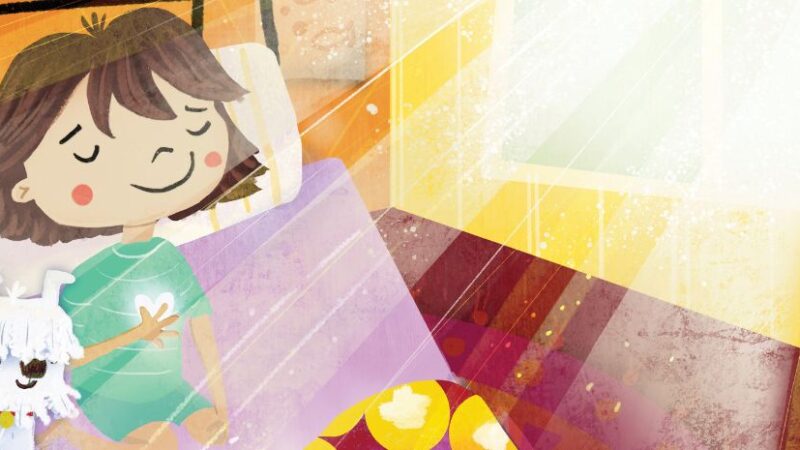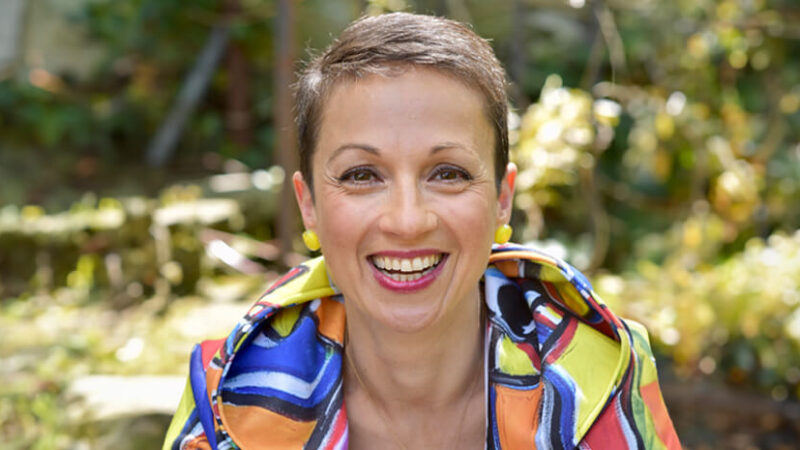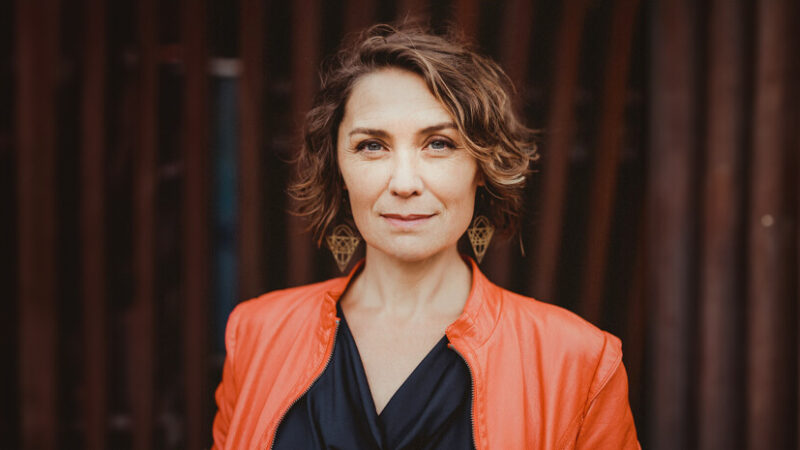-
E117: The Real Work: Letting Go from Within
Michael Singer — October 2, 2025
True spirituality isn’t about mystical experiences or lofty ideals—it’s about honestly facing...
-
Once More: Reflections on Reincarnation and the Gap Between Lives
Tami Simon — September 26, 2025
In this special reflection episode of Insights at the Edge host Tami Simon looks back on her...
-
Honey Tasting Meditation: Build Your Relationship with Sweetness
There is a saying that goes “hurt people hurt people.” I believe this to be true. We have been...
Written by:
Amy Burtaine, Michelle Cassandra Johnson
-
Many Voices, One Journey
The Sounds True Blog
Insights, reflections, and practices from Sounds True teachers, authors, staff, and more. Have a look—to find some inspiration and wisdom for uplifting your day.
Standing Together, and Stepping Up
Written By:
Tami Simon -
The Michael Singer Podcast
Your Highest Intention: Self-Realization
Michael Singer discusses intention—"perhaps the deepest thing we can talk about"—and the path to self-realization.
This Week:
E116: Doing the Best You Can: The Path to Liberation -
Many Voices, One Journey
The Sounds True Blog
Insights, reflections, and practices from Sounds True teachers, authors, staff, and more. Have a look—to find some inspiration and wisdom for uplifting your day.
Take Your Inner Child on Playdates
Written By:
Megan Sherer
600 Podcasts and Counting...
Subscribe to Insights at the Edge to hear all of Tami's interviews (transcripts available, too!), featuring Eckhart Tolle, Caroline Myss, Tara Brach, Jack Kornfield, Adyashanti, and many more.
Most Recent
Self-Love is a Superpower
Dear Sounds True friends,
I believe self-love is a superpower.
When we treat ourselves with kindness, it turns on the learning centers of the brain and gives us the resources to face challenges and learn from our mistakes. Transformation requires a compassionate mindset, not shame.
And yet, people often worry that self-love will make them lazy, self-indulgent, or self-absorbed. Science shows just the opposite: people with greater self-love are more compassionate toward others, more successful and productive, and more resilient to stress.
The best news of all: self-love can be learned. We can rewire the structure of our brain and strengthen the neural circuitry of love toward ourselves and others. Each time we practice self-love, we grow this pathway.
My new children’s book, Good Morning, I Love You, Violet!, offers a road map for strengthening your child’s brain circuitry of deep calm, contentment, and self-love.

It is built on principles of psychology and neuroscience and offers a simple yet powerful practice.

As a mother, when asked what I believe is the most important thing we can teach our children, I always answer “self-love.” Learning to be on our own team and to treat ourselves with kindness is life-changing. There is no greater gift we can give our children. There is no greater gift we can give ourselves.

May this book plant seeds of kindness that ripple out into the world.

Shauna Shapiro, PhD
P.S. I invite you to download a free coloring sheet from the book, created by illustrator Susi Schaefer, to enjoy with the children in your life.
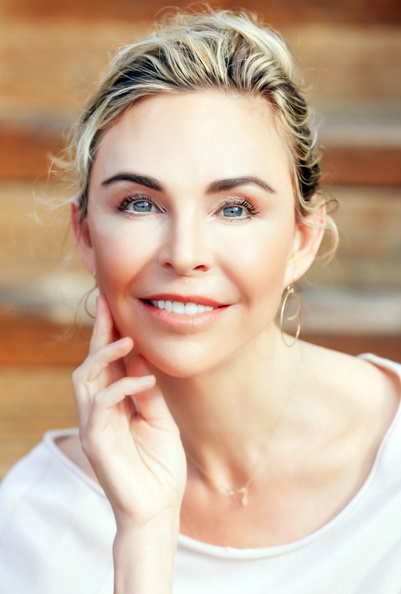
Shauna Shapiro is a mother, bestselling author, professor, clinical psychologist, and internationally recognized expert in mindfulness and self-compassion. She lives in Mill Valley, California. Learn more at drshaunashapiro.com.
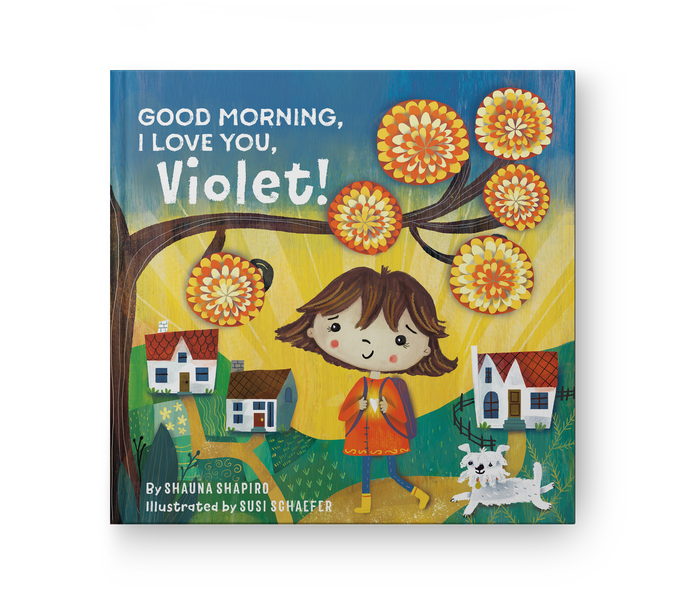
Learn More
Amazon | Barnes & Noble | Bookshop | Sounds True
Justin Michael Williams, Shelly Tygielski, and Mario V...
The end of racism—really? When your eyes stop rolling, tune in to this podcast to hear why it’s actually possible—in our lifetimes—to free our society from systemic racial oppression and injustice. In part one of this episode of Insights at the Edge, Tami Simon speaks with Justin Michael Williams and Shelly Tygielski about their new book, How We Ended Racism. In part two, filmmaker and activist Mario Van Peebles joins the conversation to share his own hope-giving perspective.
This stirring and uplifting podcast explores the five assumptions that perpetuate racism; the eight pillars of possibility; the pledge to help end racism; how our inner work relates to the outer change that we’re working toward; assertion versus assessment, and learning to recognize our own biases; shadow work and confronting the concept of supremacy; taking action where we’re standing right now; “loving with bigger arms”; crossing the divide within families; the metaphor of the inherited house; the practice of calling forward; intraconnection; the link between exposure and empathy; the SUSS process: State, Uncover, Synergize, and Select; and more.
Note: This episode originally aired on Sounds True One, where these special episodes of Insights at the Edge are available to watch live on video and with exclusive access to Q&As with our guests. Learn more at join.soundstrue.com.
Nataly Kogan: Living in a Friendly and Joy-Filled Univ...
What brings you your greatest joy? How do you access your inner “awesome”? Nataly Kogan has made it her life’s work to help people overcome burnout and break free from endless busyness. In this podcast, Tami Simon speaks with Nataly about her new book, The Awesome Human Journal, and the practical steps we can begin to take right now to shift out of self-defeating thought patterns (and their corresponding emotions), reclaim our energy, and share our gifts with the world.
Tune in as Tami and Nataly discuss insights from neuroscience that everyone should know; the human brain’s negativity bias; creating a better relationship with your thoughts—a key to well-being and emotional fitness; the worst-case scenario exercise; finding certainty in uncertain times; working within your sphere of impact; cultivating agency; freedom from skepticism and mistrust; living an aligned life in a universe that is friendly; energetic self-care; breaking the habit of denying ourselves joy; changing our habitual frame of reference to something positive and supportive; and more.
Note: This episode originally aired on Sounds True One, where these special episodes of Insights at the Edge are available to watch live on video and with exclusive access to Q&As with our guests. Learn more at join.soundstrue.com.
Customer Favorites
Personal, Interpersonal, Transpersonal
I was recently sitting in the audience of a talk by a spiritual teacher who was pointing out, again and again, the timeless nature of being. Although I could feel the depth and profundity of the eternal moment, at a certain point, I noticed myself feeling contracted and frustrated. I thought to myself, “What about focusing on interpersonal relationships and helping us develop skills for being intimate with other people and communicating well at work, that type of thing? I am sick of timeless being!”
And then I remembered that some people are what could be called “subject matter experts” and everyone can’t be good at everything. And that the way I could benefit the most from this talk was to relax into timelessness and learn from this teacher what he is gifted at transmitting and communicating. Fortunately, that approach worked, and my critical mind relaxed.
However, I also started reflecting on something I read in a book by Robert Augustus Masters. Robert is a new author with Sounds True and has written a new book on Emotional Intimacy, and created a new audio series called Knowing Your Shadow. Robert talks about the “personal, interpersonal, and transpersonal” dimensions of experience. And when I read his description of these three different aspects or dimensions, I just loved it! I notice that whenever people just talk about the “transpersonal”, about what is formless, I begin to long for the personal and interpersonal. And when people just talk about the “personal”, about their challenges and woes, I begin to long for a bigger view that doesn’t place any limits anywhere. Maybe I am just a chronic complainer?
But actually, I think it is more than that. My sense is that the personal, interpersonal, and transpersonal are always all three happening simultaneously. And if we leave any dimension out (in a chronic type of way), we are missing something. And when we include all three — how we are feeling individually, how we are experiencing inter-relating with others, and what it is like to transcend any sense of self and other and experience pure being – then we are experiencing a type of wholeness that leaves nothing out.
So I guess we could say I am happy in wholeness and cranky when transcendence is favored instead of recognized as one dimension of multi-dimensional being. And I feel cranky because I have seen people walk out of these transcendence-focused talks without any clue about how to work with difficult emotional states when they arise (and as we all know, they arise). Teachings that are wholly focused on the transpersonal dimension can be a breeding ground for what Robert Augustus Masters calls “spiritual bypassing” – using our spirituality to avoid facing aspects of our experience, particularly difficult emotional experiences. Robert’s focus is on “emotional literacy”, that we can learn to be fluent with all of our emotions, appreciating their nuances and what is being called forth in us in any given situation. To learn more about Robert’s work, you can check out this two-part podcast I did with him recently on Emotional Intimacy, here and here. Listening to Robert, I felt the opposite of “cranky”; I felt whole.

Loch Kelly: The Way of Effortless Mindfulness
Loch Kelly is a meditation teacher, psychotherapist, and the founder of the Open-Hearted Awareness Institute. With Sounds True, he has released the new book The Way of Effortless Mindfulness: A Revolutionary Guide for Living an Awakened Life. In this episode of Insights at the Edge, Tami Simon speaks with Loch about “effortless mindfulness”—what it is, how it’s realized, and what it means for the next stages of human development. Loch guides listeners in practices for “unhooking” from the stream of thought and dropping into the flow state of effortless awareness. Tami and Loch also discuss the traditional roots of effortless awareness and the many pitfalls that can divert us away from it. Finally, Loch explains that living from effortless awareness is not emotionless and automatic, but is filled with immense compassion and the joy of being in harmony with the present moment. (77 minutes)
Megan Devine: Acknowledging Our Grief and Carrying Wha...
When we suffer a serious loss, we come face-to-face with the fragile nature of this world. Yet in today’s culture, we often try to avoid or deny the deep emotions associated with losing the people and things we love. In this podcast, Tami Simon speaks with therapist and grief consultant Megan Devine about her uniquely helpful books with Sounds True, It’s OK That You’re Not OK and How to Carry What Can’t Be Fixed.
Tune in for a much-needed conversation on the best ways to tend one another’s pain during periods of loss, as Tami and Megan discuss: the cover-up narrative that “bad things help us grow”; the roots of today’s grief phobia; pain vs suffering; grief without a story; the healing power of acknowledgment; tolerating feelings of helplessness; the impulse to fix things; the weaponization of acceptance; time and the notion of complicated grief; the dangers of pathologizing grief; the lost opportunity to reframe grief during the pandemic; naming the awkward instead of silencing yourself; offering concrete assistance rather than an open offer to help; three kinds of hope: transactional, functional, and inhabitable; speaking our truth and allowing others the same; and more.
Note: This episode originally aired on Sounds True One, where these special episodes of Insights at the Edge are available to watch live on video and with exclusive access to Q&As with our guests. Learn more at join.soundstrue.com.

